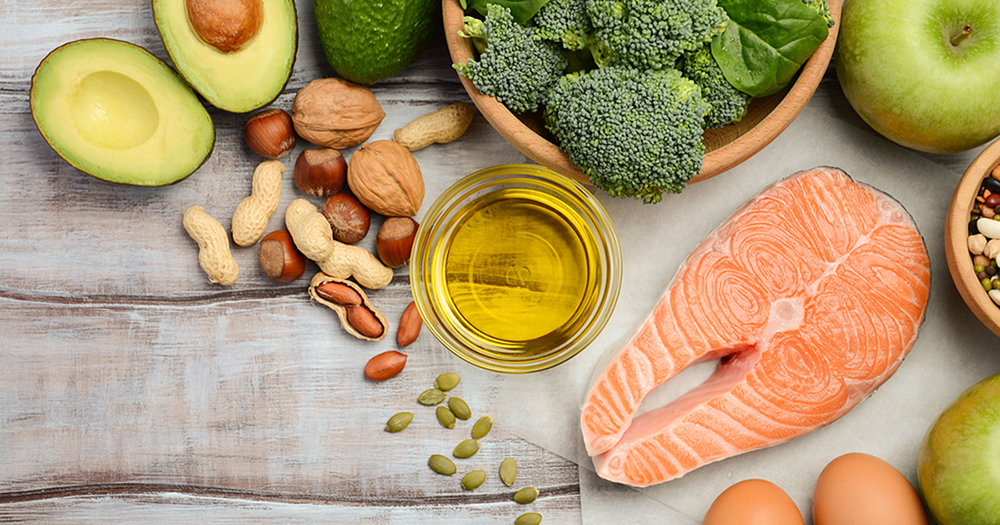
Stress isn’t just an emotional experience—it’s a full-body event. Chronic stress affects every major system in the body, from spiking your cortisol to upsetting your stomach. When your stress response is activated, it diverts energy from digestion, reproduction, and repair to prepare your body for a perceived threat. This often leads to fatigue, anxiety, poor sleep, and nutrient depletion.
Functional medicine looks at this cascade holistically, addressing not just the symptoms but the underlying imbalances that make stress harder to cope with. One of the most important pieces? What you eat.

When you're under stress, one of the most critical things to monitor is your blood sugar.
Stress hormones like cortisol and adrenaline are activated when your blood sugar drops. This creates a vicious cycle:
Stress increases cravings for refined carbs and alcohol
These spike your blood sugar
Then comes the crash, which stimulates even more cortisol and adrenaline
Prioritize protein and healthy fat in every meal (e.g., eggs, grass-fed beef, avocado)
Avoid skipping meals—this creates unnecessary cortisol spikes
Limit or avoid refined sugars, alcohol, and processed snacks
Add fiber-rich carbs like sweet potato or squash for slow-release energy
If you feel nauseous from stress and can’t tolerate solid meals, opt for:
Bone broth with collagen peptides
A simple smoothie with coconut milk and a scoop of protein
Light soups made from chicken, root veggies, and herbs
These meals are gentle on the stomach but still nourishing and stabilizing.

Your body’s nutritional demands increase under stress. These nutrients help rebuild and rebalance your nervous system:
Crucial for neurotransmitter production (like serotonin and dopamine)
Support adrenal function and energy metabolism
Known as the “relaxation mineral.”
Helps reduce muscle tension and anxiety and improves sleep quality
Found in leafy greens, pumpkin seeds, and dark chocolate
An inhibitory neurotransmitter that calms the brain
Often depleted during chronic stress
An amino acid found in green tea that promotes alpha brain waves (relaxed focus)
Can be taken as a supplement for an immediate calming effect

Adaptogenic herbs help your body “adapt” to stress by modulating cortisol levels and supporting adrenal health.
Helps reduce cortisol and balance mood
Supports thyroid health and stamina
Especially helpful for fatigue-driven stress
Enhances mental performance and stamina
Great for stress tied to mental exhaustion or burnout
Can be stimulating, so best taken earlier in the day
Calms the nervous system while supporting immune function
May lower blood sugar and reduce stress-related inflammation
These herbs directly support GABA production
Ideal for individuals struggling with sleep or racing thoughts
Often used in nighttime formulas or teas

Functional medicine offers comprehensive lab testing to get a full picture of how stress is affecting your health. These tests uncover imbalances that are often missed in standard care.
Assesses cortisol rhythm throughout the day
Evaluates adrenal health, DHEA, melatonin, and sex hormones
Looks at neurotransmitter breakdown products, B-vitamin status, mitochondrial function, and more
Detects functional nutrient deficiencies contributing to anxiety or fatigue
Assesses gut health, which is intimately tied to stress response
Looks for dysbiosis, leaky gut, and infections that may be triggering inflammation
Provides insight into foundational micronutrient status
Elevated homocysteine can signal methylation issues tied to mood and brain function
These tests can guide personalized protocols using foods, herbs, and nutrients that match your physiology.
👉 Want to see if these labs are right for you? Schedule a free consult with Dr. J here.
Supplements and foods are essential, but your daily habits also play a decisive role in managing stress:
Prioritize sleep (7-9 hours): Sleep is your brain’s reset button
Get daily sun exposure: Helps regulate cortisol and serotonin
Practice deep breathing or meditation: Just 5-10 minutes daily can lower stress hormones
Exercise moderately: Gentle movement like walking or yoga reduces tension without overwhelming the system

Fighting stress naturally doesn’t require fancy formulas. It begins with stable meals, key nutrients, and nervous system-supportive herbs. When you’re stressed, simplify—choose soups, smoothies, and foods that are easy to digest. Add calming herbs and make space for deep rest.
And remember, there’s no one-size-fits-all approach. Lab testing can help pinpoint your unique nutrient gaps and stress triggers so you’re not guessing your way to healing.
Get personalized advice on which labs and herbs are best for your situation.
👉 Book your free consultation with Dr. Justin Marchegiani today
References
B Vitamins and Stress Response
Effect of B-vitamin supplementation on occupational stress:
https://pubmed.ncbi.nlm.nih.gov/20329190
→ B-complex vitamins can significantly reduce personal strain and confusion during workplace stress.
Magnesium and Stress Regulation
Magnesium in prevention and therapy:
https://pubmed.ncbi.nlm.nih.gov/26404370
→ Magnesium plays a critical role in stress resilience and nervous system balance.
GABA Supplementation for Anxiety and Mood
Effect of GABA administration on stress in humans:
https://pubmed.ncbi.nlm.nih.gov/16971751
→ GABA intake promotes relaxation and reduces psychological stress markers.
L-Theanine and Cognitive Stress
L-theanine reduces stress and improves attention:
https://pubmed.ncbi.nlm.nih.gov/18296328
→ L-theanine induces calming effects without sedation, supporting focus under stress.
Ashwagandha for Stress Reduction
Ashwagandha in stress-related disorders:
https://pubmed.ncbi.nlm.nih.gov/23439798
→ Clinical studies show Ashwagandha significantly lowers cortisol and perceived stress.
Rhodiola and Mental Fatigue
Rhodiola Rosea in stress and fatigue:
https://pubmed.ncbi.nlm.nih.gov/17990195
→ Rhodiola improves stress tolerance, fatigue resistance, and mental clarity.
Holy Basil for Adaptogenic Support
Tulsi (Holy Basil) for general stress and anxiety:
https://pubmed.ncbi.nlm.nih.gov/20863320
→ Holy Basil reduces anxiety, improves memory, and supports balanced energy.
Valerian Root and Sleep Quality
Valerian efficacy for improving sleep:
https://pubmed.ncbi.nlm.nih.gov/23352060
→ Valerian root has shown benefits for sleep latency and nervous tension.
Passionflower and GABA Activity
Anxiolytic effects of Passiflora incarnata:
https://pubmed.ncbi.nlm.nih.gov/12062556
→ Passionflower interacts with GABA receptors to produce calming effects.
Functional Lab Testing in Chronic Stress Cases
Salivary cortisol assessment in stress-related disorders:
https://pubmed.ncbi.nlm.nih.gov/12955760
→ Saliva cortisol tests accurately reflect stress hormone patterns in real-time.
====================
Recommended Products